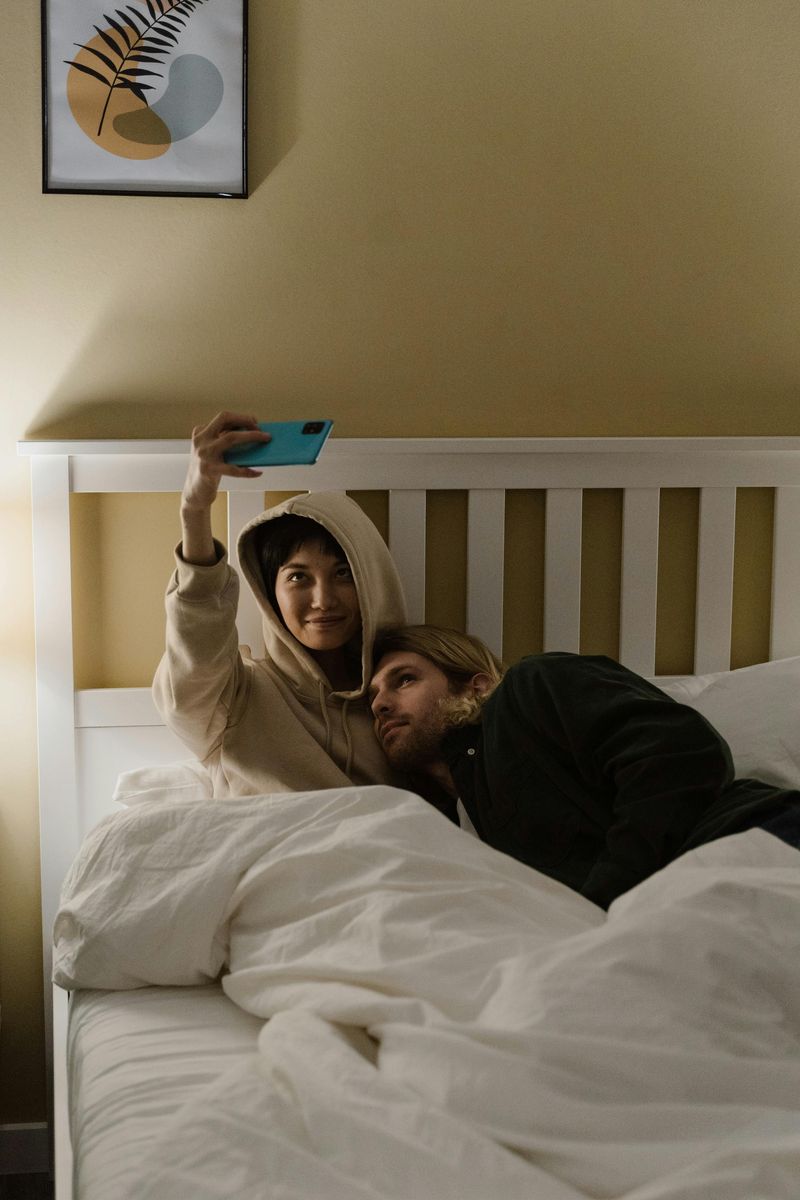11 Subtle Things Wives Notice When Their Husbands Stop Desiring Them

In the realm of relationships, subtle changes can speak volumes. When a husband’s desire wanes, wives often notice the little things that shift in their dynamic. These shifts, though minor in appearance, can signal deeper emotional distances. From the absence of affectionate gestures to the growing silence in conversations, these changes can create a silent but palpable tension. It’s often these nuanced shifts that tell a story of emotional disconnect. Recognizing and addressing these signs can be pivotal in rekindling the warmth and intimacy that once flourished. Here are eleven subtle things wives notice when the flame of desire begins to flicker out.
1. The Compliments Stop Coming

Once, your new hairstyle or outfit would spark a flurry of compliments. Now, silence fills the void where affirmations once lived. This absence might feel like standing in a spotlight that’s suddenly dimmed.
The lack of verbal acknowledgment can leave you questioning the very essence of your connection. Where once there was enthusiasm, now there’s only quiet indifference. This change can chip away at your confidence and spark feelings of invisibility.
Acknowledging how this shift makes you feel can be the first step towards open communication. A simple conversation might reveal underlying reasons and pave the way for reconnection.
2. Physical Touch Feels Rare or Routine

Playful touches and spontaneous kisses used to pepper your days with warmth. Now, the gestures seem mechanical, devoid of the spark they once held.
The absence of affection can feel like being wrapped in a cold, distant fog. Physical touch is not just about contact; it’s about communicating love and desire. When these gestures shift to routine, it can feel like a silent withdrawal.
Recognizing this change might call for a gentle conversation. Expressing your need for warmth and intimacy can help bridge the gap and rekindle your connection.
3. Conversations Become Surface-Level

Deep, meaningful conversations have given way to mundane chats about schedules and bills. The substance that once fueled your dialogue feels lost in the daily grind.
When conversations shift to logistics, the emotional connection can feel neglected. It’s not just about talking; it’s about sharing thoughts and dreams.
This change can be an opportunity to reintroduce those soul-stirring discussions. By intentionally creating space for deeper topics, you can rediscover the joy of truly connecting.
4. He’s Less Engaged Around You

Mid-conversation, you notice his eyes drifting to his phone. It’s a subtle but profound shift from the attentive partner he once was.
The lack of engagement can feel like a curtain has been drawn between you. It signals a shift from active participant to passive observer in your shared life.
Addressing this behavior might unveil stressors or distractions you were unaware of. By communicating openly, you may find ways to rekindle the engagement that once defined your relationship.
5. There’s a Noticeable Distance in the Bedroom

Intimacy once flowed naturally, but now it feels perfunctory or even absent. The bedroom, once a sanctuary, feels more like a shared solitude.
This emotional distance can create an invisible wall, marking a shift in closeness and connection. It’s a change that can leave you feeling emotionally stranded.
Understanding and discussing these feelings openly can be transformative. It might lead to exploring new ways to connect and bring intimacy back into your shared space.
6. He Stops Making Eye Contact

Eye contact, once a silent affirmation of connection, has become fleeting. The windows to his soul seem to shut, leaving you feeling unseen.
The absence of this intimate gesture can create a void where connection once thrived. It’s as if the emotional bridge between you has eroded.
Reestablishing this visual connection can be as simple as prioritizing face-to-face conversations. Encouraging eye contact can reignite the familiarity and warmth that’s been missing.
7. He Prioritizes Everything Else

Work, hobbies, and friends have all climbed the priority ladder, leaving you to wonder where you fit in. Feeling like an afterthought can sting.
When everything else seems to come first, it’s easy to feel sidelined in your own relationship. This shift can unravel the fabric of connection.
Acknowledging how this prioritization affects you might open doors to finding balance. Creating shared experiences can help remind him of the importance of your bond.
8. He Seems Irritated by Little Things

What once brought laughter now seems to spark annoyance. His patience has dissipated, leaving room for frustration.
This shift can feel like walking on eggshells, unsure of what might trigger his irritation next. It’s a subtle yet impactful change that can create tension.
Exploring this change can lead to understanding underlying stressors or pressures. By addressing these together, you might find ways to restore patience and warmth.
9. He Doesn’t Flirt Anymore

Once, his playful teasing and lighthearted banter filled your days with excitement. Now, it feels as if the spark of flirtation has fizzled.
The absence of flirting can make the relationship feel flat, devoid of the laughter and chemistry that once defined it. It’s a subtle sign of emotional distancing.
Reintroducing playfulness and flirtation can revitalize the relationship. Acknowledging its absence might be the first step in reigniting the chemistry you both enjoyed.
10. He Avoids Emotional Conversations

When emotions come up, he deflects with humor or silence. The depth that once characterized your conversations feels lost.
Avoidance of emotional discussions can create a chasm between you, leaving important feelings unaddressed. It’s a shift that might feel isolating.
Encouraging a safe space for these conversations can be crucial. By fostering openness, you can both explore and address the emotions that need attention.
11. You Feel Invisible Even When He’s Right There

Physically present, but emotionally distant, he feels miles away. This disconnect can make you feel unseen despite his proximity.
Feeling invisible can foster loneliness, even in a shared space. It’s a subtle shift that can erode the sense of partnership.
Recognizing and expressing how this invisibility affects you can be a catalyst for change. By addressing it together, you can work towards bridging the emotional gap.

Comments
Loading…